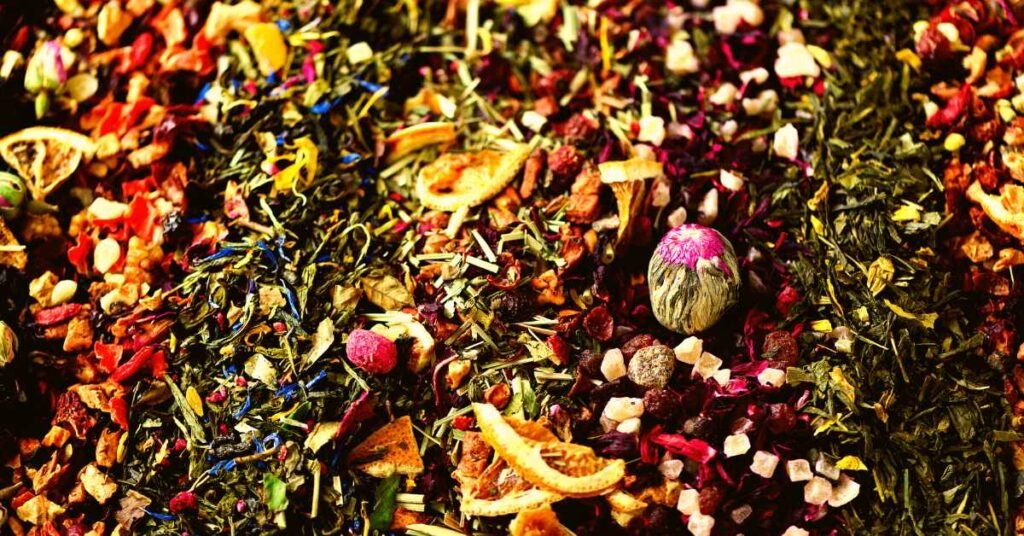Tea, a beverage cherished for its diverse flavors and cultural significance, has been consumed for centuries.
Beyond its taste, tea also boasts a myriad of health benefits, and recent research has shown promising results in the realm of ovarian tumor management.
In addition to traditional tea leaves, the rich biodiversity of the Amazon rainforest provides a unique set of herbs that have been gaining attention for their potential in supporting overall well-being, including the management of ovarian tumors.
This article explores the relationship between tea, Amazonian herbs, and their potential role in promoting ovarian health.
The Power of Tea in Ovarian Tumor Management

Tea, particularly green tea, has long been celebrated for its high concentration of antioxidants, primarily catechins.
Studies suggest that these antioxidants may play a crucial role in reducing the risk of various types of cancers, including ovarian tumors.
The polyphenols in tea have anti-inflammatory and anti-cancer properties that may help inhibit the growth of tumor cells and prevent their spread.
Epigallocatechin gallate (EGCG), a specific catechin found in green tea, has been extensively studied for its potential in cancer prevention and treatment.
Research indicates that EGCG may induce apoptosis (programmed cell death) in ovarian cancer cells, offering a targeted approach to combating tumor growth.
Regular consumption of green tea has been associated with a lower risk of ovarian cancer, making it a valuable addition to a holistic approach in tumor management.
While green tea takes the spotlight, other varieties such as black tea and white tea also contain polyphenols with potential health benefits.
Black tea, fermented and oxidized, retains unique compounds that contribute to its distinct flavor and potential anti-cancer properties.
White tea, minimally processed and rich in antioxidants, offers a milder flavor profile while providing similar health benefits.
Amazonian Herbs: A Treasure Trove of Healing

The Amazon rainforest, often referred to as the “lungs of the Earth,” is home to an extraordinary diversity of plant life, many of which have been used by indigenous communities for centuries for their medicinal properties.
As the global interest in natural remedies grows, Amazonian herbs have gained recognition for their potential in promoting health and well-being.
One such herb is Cat’s Claw (Uncaria tomentosa), a woody vine native to the Amazon rainforest.
Cat’s Claw has been traditionally used by indigenous communities for its immune-boosting properties and anti-inflammatory effects.
Research suggests that its compounds may help inhibit the growth of cancer cells, including those associated with ovarian tumors.
While more studies are needed, incorporating Cat’s Claw into a holistic wellness routine may offer supplementary support for those facing ovarian health challenges.
Another notable Amazonian herb is Graviola (Annona muricata), also known as soursop.
Studies have explored Graviola’s potential anti-cancer properties, with some research suggesting that it may help inhibit the growth of ovarian cancer cells.
The active compounds, such as acetogenins, have shown promise in preclinical studies.
While further research is essential, the traditional use of Graviola in indigenous medicine systems highlights its potential in holistic health practices.
Combining Tea and Amazonian Herbs

The synergy between tea and Amazonian herbs presents an exciting avenue for those seeking natural approaches to support ovarian health.
Blending these two powerful sources of antioxidants and bioactive compounds may provide a holistic approach to managing ovarian tumors.
One way to combine these elements is through herbal tea blends that incorporate Amazonian herbs.
Creating a fusion of green tea with Cat’s Claw or infusing black tea with Graviola can offer a delightful and health-promoting beverage.
Additionally, incorporating these herbs into a well-balanced diet, under the guidance of a healthcare professional, may contribute to a comprehensive approach to ovarian tumor management.
Considerations and Precautions
While the potential benefits of tea and Amazonian herbs in ovarian tumor management are promising, it is crucial to approach these remedies with caution.
Always consult with a healthcare professional before introducing new herbs or supplements into your routine, especially if undergoing conventional cancer treatments.
Natural remedies should complement, not replace, medical advice and treatment plans.
Furthermore, individual responses to herbal remedies can vary, and what works for one person may not be suitable for another.
It is essential to be mindful of potential interactions with medications and any pre-existing health conditions.
Final Word

Tea, with its rich history and proven health benefits, combined with the healing potential of Amazonian herbs, offers a holistic approach to managing ovarian tumors.
The antioxidants and bioactive compounds present in tea, especially green tea, may contribute to inhibiting the growth of cancer cells.
Meanwhile, Amazonian herbs like Cat’s Claw and Graviola bring traditional wisdom and potential therapeutic effects to the table.
As research in this field continues to evolve, it is crucial for individuals to stay informed, consult with healthcare professionals, and make informed decisions about incorporating tea and Amazonian herbs into their wellness routines.
While these natural remedies hold promise, a balanced approach that integrates conventional medical advice with complementary therapies is key to promoting overall well-being for those navigating the challenges of ovarian health.
MEDICAL DISCLAIMER
Itsnevernotteatime.com cannot and does not contain medical/health advice. The medical/health information is provided for general and educational purposes only and is not a substitute for professional advice.




